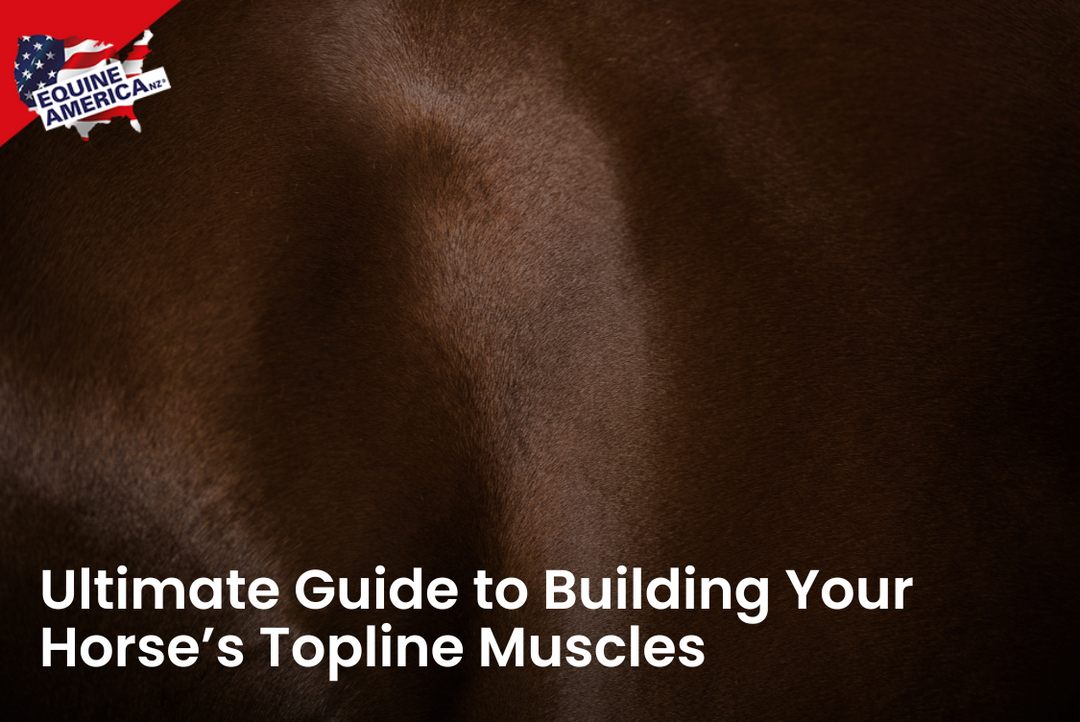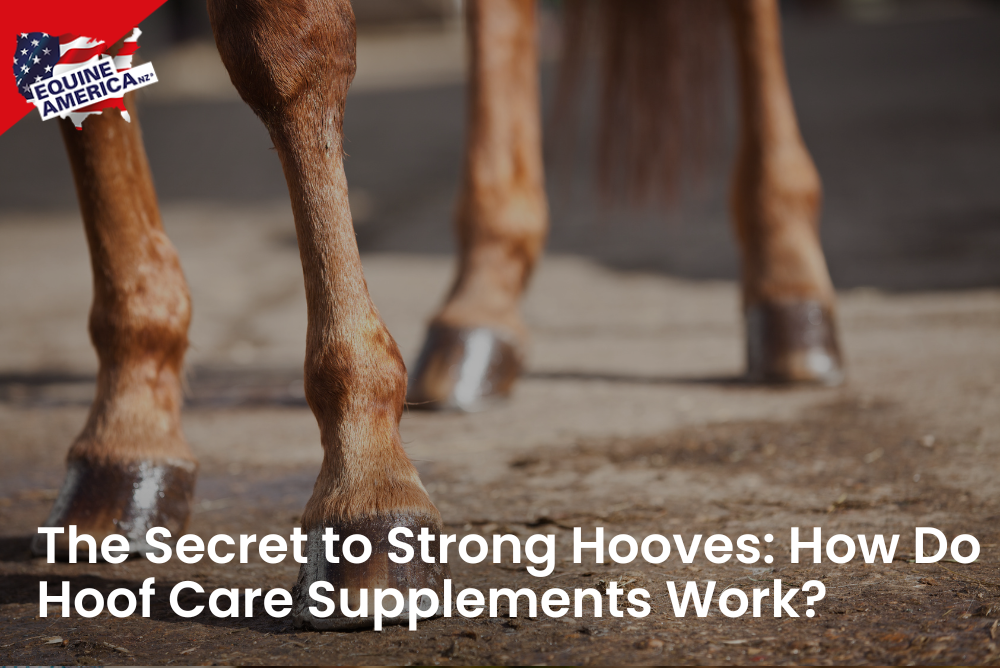As a horse owner or enthusiast, it's important to have a basic understanding of how your horse's digestive system works. The equine digestive system is a remarkable and complex system that allows horses to efficiently process and extract nutrients from their diet. By understanding how it functions, you can make informed decisions about feeding, nutrition such as digestive supplements, and overall horse care.
In this guide, we will take a closer look at the key components of the equine digestive system, its functions, and how you can support your horse's digestive health. Let's delve into the fascinating world of equine digestion!
The Equine Digestive System: An Overview
The equine digestive system is a complex and efficient mechanism that allows horses to extract nutrients from their food. It consists of several key components, each playing a vital role in the digestion and absorption of nutrients. These components include:
- The Mouth and Teeth: The digestive process begins in the mouth, where horses chew their food using their powerful jaws and grinding teeth. The teeth help break down the food into smaller particles, increasing the surface area for digestion.
- The Esophagus: Once the food is chewed and mixed with saliva, it travels down the esophagus, a muscular tube that connects the mouth to the stomach. The esophagus carries the food to the next stage of digestion.
- The Stomach: In the stomach, gastric juices and enzymes break down the food further, primarily focusing on protein digestion. The stomach is relatively small compared to the size of the horse and has a limited capacity.
- The Small Intestine: The partially digested food then moves into the small intestine, where the majority of nutrient absorption takes place. Enzymes from the pancreas and bile from the liver aid in breaking down carbohydrates, proteins, and fats for absorption into the bloodstream.
- The Large Intestine: The large intestine consists of the cecum, colon, and rectum. It is responsible for fermenting fibrous material and extracting additional nutrients from the feed. Bacterial fermentation produces volatile fatty acids, a significant energy source for the horse.
- The Cecum: The cecum is a pouch-like structure located at the junction of the small and large intestines. It is the primary site for the breakdown of fibrous material through microbial fermentation.
- The Rectum: Finally, undigested waste material moves into the rectum, where water is absorbed, and the remaining feces are formed before elimination.
Functions Of The Equine Digestive System
The equine digestive system serves several crucial functions that are essential for the horse's overall health and wellbeing. Let's explore these functions in more detail:
- Digestion of Carbohydrates, Proteins, and Fats: The digestive system breaks down carbohydrates, proteins, and fats present in the horse's diet into smaller molecules that can be absorbed by the body. This process allows the horse to extract essential nutrients and energy from the food it consumes.
- Absorption of Nutrients: The small intestine is responsible for the absorption of nutrients, such as glucose, amino acids, vitamins, and minerals, into the bloodstream. These nutrients are then transported to various tissues and organs to support bodily functions and provide energy for growth, maintenance, and performance.
- Elimination of Waste Products: The digestive system eliminates waste products, primarily in the form of feces. This process ensures the removal of indigestible materials and by-products of digestion, maintaining a healthy gut environment.
Factors Affecting Digestive Health
Several factors can significantly impact the digestive health of horses. Understanding these factors is essential for maintaining a healthy and balanced digestive system. Here are some key factors that can affect equine digestive health:
- Diet: The type and quality of the horse's diet play a crucial role in digestive health. Horses are herbivores with a natural inclination towards grazing on forage. A diet that includes high-quality hay, pasture, and balanced concentrates promotes proper digestion. Sudden changes in diet, overfeeding, or inadequate fibre intake can lead to digestive disturbances.
- Water Intake: Sufficient water intake is essential for optimal digestion. Horses should have access to clean, fresh water at all times. Inadequate water intake can lead to dehydration and impede the smooth movement of food through the digestive system.
- Stress: Stress can negatively impact the digestive health of horses. Changes in routine, transportation, competition, or social dynamics can cause stress and disrupt normal digestive processes. Stress management and providing a calm and stable environment can help maintain digestive balance.
- Parasites: Internal parasites, such as worms, can affect the digestive health of horses. Parasite infestations can lead to poor nutrient absorption, weight loss, and overall health issues. Regular deworming and pasture management practices are crucial for controlling parasite infections.
- Dental Health: Dental problems, such as sharp edges, tooth loss, or misalignment, can affect a horse's ability to chew and process food effectively. Proper dental care, including regular dental check-ups and floating (smoothing of sharp tooth edges), is essential for maintaining good digestive function.

Common Digestive Issues In Horses
Horses can experience various digestive issues that can range from mild discomfort to severe health problems. It is important for horse owners to be aware of these common digestive issues and their symptoms. Here are some of the most prevalent digestive issues in horses:
- Colic: Colic is a general term used to describe abdominal pain in horses. It can be caused by various factors, including intestinal gas, impactions, torsions, or other blockages. Colic symptoms can range from mild to severe and may include signs of discomfort, restlessness, decreased appetite, and changes in bowel movements.
- Gastric Ulcers: Gastric ulcers are erosions or sores in the lining of the horse's stomach. They can be caused by prolonged exposure to stomach acid, stress, poor diet, or medication use. Symptoms of gastric ulcers may include poor appetite, weight loss, changes in behaviour, and decreased performance.
- Diarrhoea: Diarrhoea is the frequent passage of loose or watery stools. It can be caused by various factors, including bacterial or viral infections, changes in diet, or medication side effects. Diarrhoea can lead to dehydration and electrolyte imbalances if not addressed promptly.
- Impactions: Impactions occur when food material becomes lodged in the digestive tract, usually in the large intestine or cecum. Common causes include inadequate water intake, poor-quality forage, or lack of exercise. Signs of impactions may include decreased appetite, reduced or absent bowel movements, and abdominal discomfort.
Promoting Digestive Health in Horses
Maintaining a healthy digestive system is crucial for the overall well-being and performance of horses. Here are some tips and practices to promote optimal digestive health in your equine companion:
- Provide a Balanced Diet: Ensure your horse's diet consists of high-quality forage, such as grass or hay, which should make up the majority of their diet. Supplement the forage with a balanced concentrate feed to meet their nutritional needs. Avoid sudden changes in diet and provide regular access to fresh, clean water.
- Feed Small, Frequent Meals: Horses have evolved to graze throughout the day, so it's important to mimic this natural feeding pattern. Instead of feeding large meals, divide the daily ration into smaller, more frequent meals. This helps maintain a steady flow of food through the digestive system and reduces the risk of digestive upset.
- Encourage Regular Exercise: Regular exercise stimulates gut motility and aids in proper digestion. Turnout in a pasture or regular exercise sessions can help keep the digestive system functioning optimally. However, introduce exercise gradually and ensure it is appropriate for your horse's fitness level.
- Practice Good Parasite Control: Implement a strategic deworming program in consultation with your veterinarian to control internal parasites. Regular fecal egg counts and targeted deworming help prevent parasite-related digestive issues.
- Monitor Dental Health: Regular dental examinations and floating of teeth ensure that your horse can chew food properly. Dental issues can hinder effective digestion, so addressing any dental abnormalities is essential.
- Minimise Stress: Minimise sources of stress in your horse's environment. Provide a calm and consistent routine, avoid sudden changes, and create a safe and secure living environment. Minimising stress can help maintain a healthy digestive system.
Final Thoughts
Taking care of your horse's digestive health is vital for their overall health and well-being. By implementing the tips and practices discussed in this blog, you can promote a healthy digestive system in your horse.
At Equine America NZ, we offer a range of high-quality equine products to support your horse's well-being, including digestive health supplements and other nutritional solutions. Visit our website or contact us today to learn more and find the right products for your horse's digestive health.




